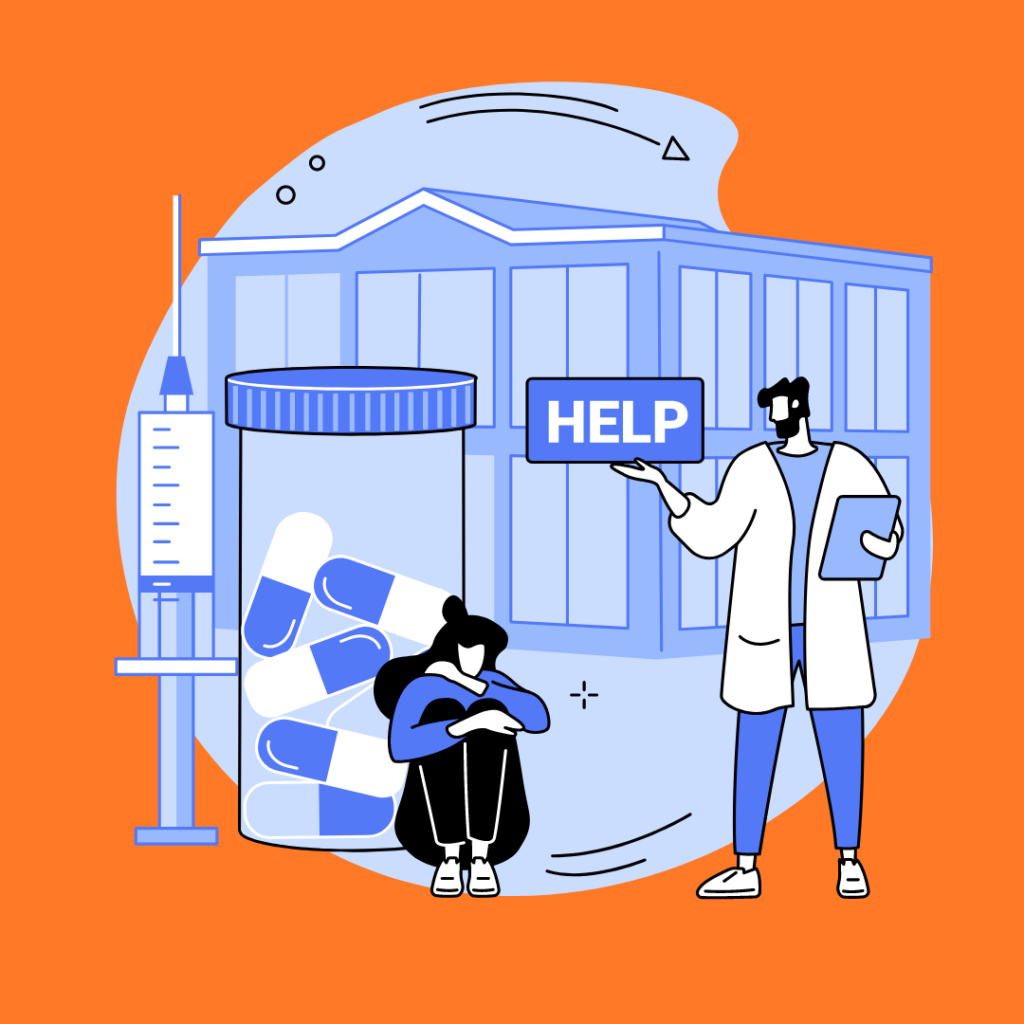A Comprehensive Overview to Drug Rehabilitation Solutions for Successful Recovery
Comprehending the intricacies of Drug Recovery is crucial for achieving lasting recovery. From detoxification to outpatient programs, the performance of these services commonly pivots on the assimilation of robust assistance systems and addressing underlying psychological concerns.
Recognizing Dependency and Recuperation
Addiction is a complicated condition that affects individuals both physically and psychologically, typically causing a cycle of uncontrollable actions despite unsafe repercussions. It normally manifests as a chronic condition, characterized by the lack of ability to quit involving or using a substance in a behavior, despite the negative effect it may have on one's life. This ruthless cycle is frequently sustained by different elements, including hereditary proneness, environmental impacts, and mental issues.
Healing from addiction is a complex process that involves not just the cessation of compound use yet also the makeover of one's way of living and believed patterns. Effective recovery requires a comprehensive technique, dealing with the underlying reasons of dependency and cultivating coping approaches to avoid relapse. Support systems, consisting of therapy, counseling, and peer support system, play a vital function in fostering strength and liability.
Comprehending the elaborate dynamics of addiction and recuperation is essential for both individuals battling with substance usage and their households. By acknowledging the intricacies and challenges included, people can better browse their journey to healing, inevitably causing healthier, a lot more meeting lives.
Kinds of Rehabilitation Programs
The trip to recovery is supported by a selection of Rehabilitation programs customized to fulfill the varied requirements of people facing substance use conditions. These programs can be generally classified into numerous types, each made to attend to particular facets of dependency and help with effective recuperation.

One typical type is the detoxing program, which supplies medical supervision and assistance throughout the withdrawal stage, making certain security and convenience. Following detox, individuals might take part in residential Rehabilitation, where they reside at a therapy center for an immersive healing experience. This setting promotes an organized atmosphere helpful to healing.
One more choice is outpatient Recovery, permitting individuals to receive therapy and support while keeping their day-to-day obligations. This adaptability can be beneficial for those with a solid support group in the house. Men’s Outpatient Drug Rehab Services. Specialized programs also exist for certain populations, such as ladies, adolescents, or people with co-occurring mental wellness conditions, making sure that therapy is culturally and developmentally suitable
In addition, all natural programs may incorporate alternate therapies, such as yoga exercise or art treatment, promoting overall wellness. Comprehending the numerous sorts of rehab programs is crucial for picking one of the most suitable path towards long lasting recovery.
Inpatient vs. Outpatient Solutions
While picking between inpatient and outpatient services can be a crucial choice in the recovery procedure, comprehending the distinctive functions and advantages of each alternative is vital. Inpatient services involve an organized environment where individuals live at a recovery facility for a prolonged period, generally varying from 28 days to numerous months. This immersive approach offers 24/7 medical guidance, a thorough therapy strategy, and an encouraging neighborhood, making it particularly advantageous for those with extreme dependency or co-occurring mental health disorders.

Inevitably, the selection between outpatient and inpatient solutions must be led by the individual's specific requirements, the extent of their dependency, and their support system (Men’s Outpatient Drug Rehab Services). Understanding these variables can useful content aid in picking one of the most efficient course toward effective Rehabilitation
Support Systems in Rehab
Assistance systems play an essential function in the Recovery procedure, giving individuals with the useful and emotional sources necessary for healing. These systems commonly consist of family, peers, professionals, and friends that add to the person's recovery journey. A durable assistance network fosters a feeling of comprehending and belonging, which can alleviate sensations of isolation commonly experienced during recuperation.
Family members participation is especially significant, as loved ones can provide inspiration, responsibility, and a risk-free room for open interaction. Entailing relative in treatment sessions can improve understanding and enhance partnerships, ultimately benefiting the recouping person.
Peer assistance groups, such as Alcoholics Anonymous or Narcotics Anonymous, offer common experiences and understandings, helping people really feel less alone in their battles. These groups motivate participants to share their stories, fostering an area that advertises common development and strength.

Elements to Take Into Consideration for Success
Success in Drug Recovery rests on numerous essential aspects that can significantly influence an individual's journey towards recovery - Men’s Outpatient Drug Rehab Services. First of all, the option of a suitable treatment program is vital. Tailored strategies that deal with specific dependency types, co-occurring mental wellness problems, and individual circumstances improve the possibility of effective results
Second of all, the visibility of a strong support group, consisting of family, buddies, and therapists, plays an important role in fostering a supporting setting. Psychological and useful assistance throughout and after treatment can help people navigate challenges and setbacks.

Moreover, aftercare learn the facts here now services ought to not be ignored. Continued assistance with counseling, support system, and area sources helps to maintain recovery and prevent regression.
Last but not least, addressing any type of underlying problems, such as injury or mental health problems, through integrated treatment techniques can considerably enhance the chances of long-term sobriety. By considering these elements, people can better position themselves for an effective Rehabilitation experience.
Final Thought
Finally, successful Rehabilitation counts on a multifaceted method that encompasses customized treatment choices, efficient support group, and comprehensive aftercare services. Recognizing the intricacies of addiction and the variety of available rehab programs is necessary for promoting recovery. By addressing specific needs and underlying problems, people can improve their possibilities of sustained sobriety. Ultimately, notified decision-making relating to treatment options plays an important duty in accomplishing lasting success in the recovery trip.
Another alternative is outpatient Recovery, permitting people to receive therapy and assistance while maintaining their daily duties.Assistance systems play an essential duty in the Rehabilitation procedure, providing people with the psychological and functional resources needed for recuperation.Specialist assistance, consisting of counselors and specialists, provides specialized advice tailored to private requirements. By integrating these different support systems, individuals in rehab can develop a solid structure for sustained recuperation and lasting success.
By resolving private requirements and underlying problems, individuals can improve their possibilities of sustained soberness.